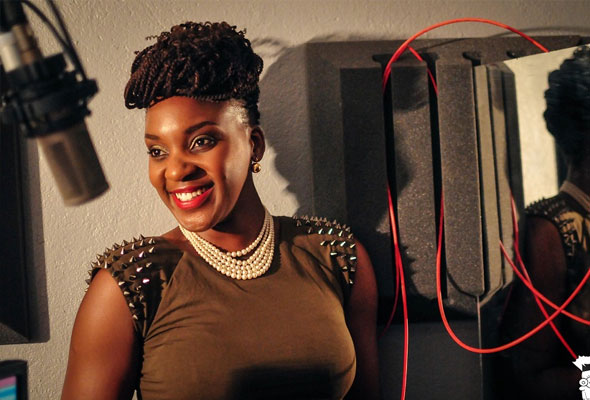
THE late former British Prime Minister and leader of the Conservative Party Margaret Hilda Thatcher was called the Iron Lady by a Soviet journalist due to her uncompromising leadership and political style.
SILENCE CHARUMBIRA ENTERTAINMENT REPORTER
Her policies implemented during her reign as the longest-serving British Prime Minister of the 20th century have become known as Thatcherism.
So huge has remained her reputation in the politics of the Britons and even beyond the borders.
Of equal magnitude on the local scene yet on a different front is one Ruvheneko Parirenyatwa, a radio presenter with ZiFM Stereo. The young lady has a penchant of emasculating her guests on radio however big their office is.
Dr Lazarus Dokora, the Education minister, Edmund Kudzayi, the suspended editor of The Sunday Mail, you name it.
She is just scathing on her programme The Platform.
The vivacious presenter told NewsDay this week she gets nasty whenever she feels undermined by the person she is interviewing. “I am like that when I need to be,” she said.
- Chamisa under fire over US$120K donation
- Mavhunga puts DeMbare into Chibuku quarterfinals
- Pension funds bet on Cabora Bassa oilfields
- Councils defy govt fire tender directive
Keep Reading
“There are certain guests that I feel undermine the intelligence of the people of Zimbabwe, guests that undermine my intelligence. “When I invite people on radio there are questions that I want answered and when one decides not to answer those questions it is frustrating.”
Asked if it is not dependant on her mood, she vehemently denied. “People do not care about your mood. There are so many such interviews that I do not remember which one to point out as an example,” she said.
The sixth child in a family of seven, Ruvheneko feels the world already knows enough about her and does not have a single thing she wishes to reveal.
She, however, delved a bit into her feelings in as much as family and politics are concerned though maintaining a highly cautious shield.
“I am goal-driven and family-oriented. I grew up visiting family and stayed in touch with family. The Diaspora cannot be an excuse especially with the advent of social media,” she said.
Asked whether her political views are driven by her family, Ruvheneko said she tries by all means to be herself before everything else yet she cannot separate herself from her family.
“I strive to be Ruvheneko. Even on radio you will realise that I introduce myself as Ruvheneko because there are a lot of connotations that people come up with on hearing the name Parirenyatwa. Some will start thinking that is why I am successful because they think I got everything on a silver platter,” she said.
“I respect all my family did but when I go to vote I am alone and I do not think that is anyone’s business. They influenced my thinking to a certain age.”
Turning to her profession as Ruvheneko feels her career has had the right steps for her to be where she is currently.
She, however, is of the opinion that Zimbabwean media is too predictable and journalists have become lazy.
“I find that our media too obvious; a little bit lazy. Desktop journalism has taken over. When I studied journalism I imagined it being more challenging and even dangerous. I prefer it to be a little bit more daring,” she said citing social media as one of the reasons for the poor journalism.
She also bemoaned the over concentration on politics by local media.
“There is too much concentration on politics even on News Hour on national television you will find the first five stories are all to do with politics when there are a lot of other issues that need coverage,” Ruvheneko said.
Ruvheneko said social media has come to frustrate slower forms of media like newspapers which carry headlines of stories that will have already been broken on social media, radio and television. On talk radio, she said locals have embraced the concept as it has made some officials accessible.
She, however, said Zimbabweans needed to open up more for the development of media.
“Zimbabwean media is definitely going digital but the mindset of our society is so conservative. There are things that we cannot say. The key is to open up the people. Zimbabweans need to open up,” she said.











